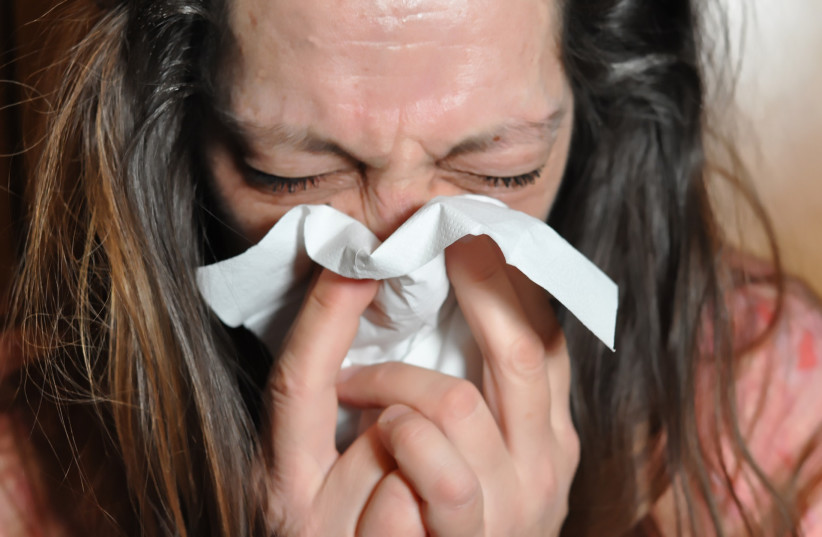It’s certainly true that you’d feel if a colleague at work who sits nearby constantly sneezes and coughs because there’s a good chance you’ll catch what they have, but a new California study reveals that simply watching a sick person triggers a biological response by the immune system.
Biology Prof. Patricia Lopez at Chapman University has studied how the body anticipates the possibility of infection just by witnessing someone else’s symptoms. This phenomenon raises questions about the interconnectedness of individuals within a social group and how the perception of sickness can influence the health and behavior of others.
Her study, entitled “Responding to infection affects more than just the host” that was published in the journal Trends in Ecology & Evolution, showed that when healthy animals interacted with animals showing disease symptoms, they activated molecular pathways related to immune responses and changed their egg composition. These types of responses are also found in humans, Lopez wrote.
“This research has helped unveil another level of the hidden ripple effects of infections, showing that when one person takes ill, it's not just their problem – it’s a complex story that can impact the health and behavior of many others,” Lopez asserted.
This shouldn't replace preventative measures like vaccines

Researchers don’t yet understand how long these anticipatory responses last, but note that they shouldn’t replace preventative measures like vaccines. Lopez is continuing to study how these anticipatory responses come about and whether they have any protective effect on the organisms experiencing them.
"An infection triggers a dramatic suite of changes in host physiology and behavior,” she wrote. “While seemingly localized, the host response affects many other organisms, both within and beyond the boundaries of the host's body and with far-reaching ecological implications.
"I call for more awareness and integration of those potential ‘off-host’ effects,” she concluded.
